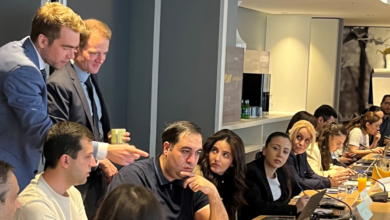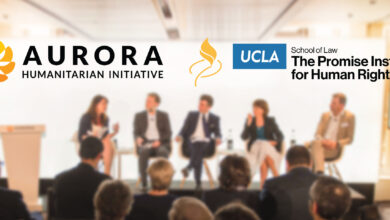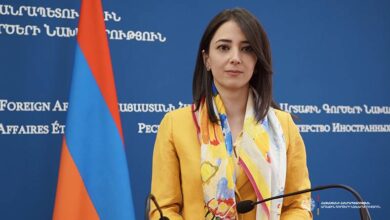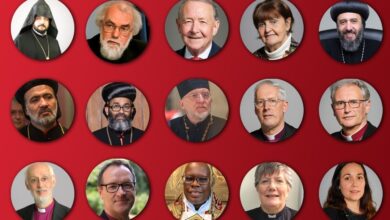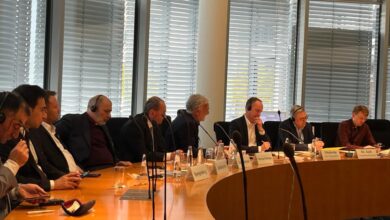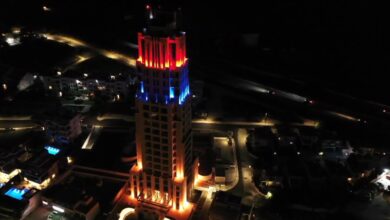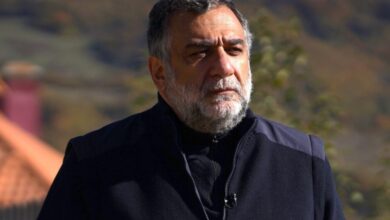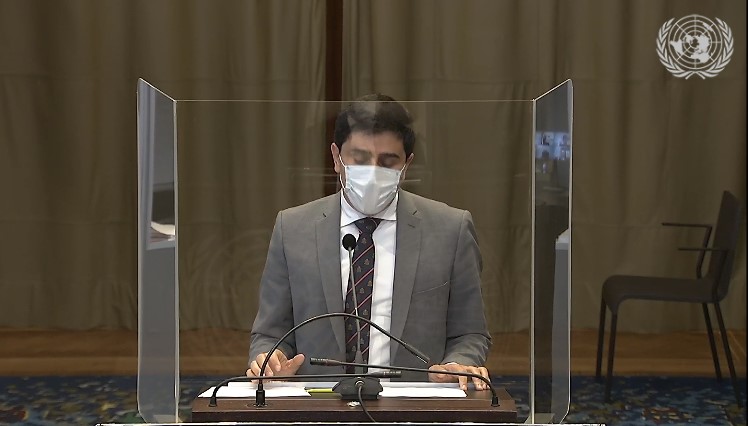
In this proceedings instituted before the Court on Armenia on September 16, 2020, Armenia does not ask the Court to resolve all of the many issues that have long divided the parties to this case, Armenia’s Representative before the European Court of Human Rights Yeghishe Kirakosyan said at the hearing on the case of Armenia vs. Azerbaijan at the International Court of Justice.
“Much less has it asked the Court to address the consequences of the most recent armed conflict. Armenia instead seeks to prevent and remedy the cycle of violence and hatred perpetrated against ethnic Armenians. In its request to implement provisional measures Armenia urgently seeks to protect the rights of ethnic Armenians from imminent harm,” Kirakosyan stated.
He noted that Both Armenia’s application and request for provisional measures are grounded in the international conventions on the Elimination of All Forms of Racial Discrimination (CERD).
Kirakosyan reminded that the Convention reaffirms that “discrimination between human beings on the grounds of race, color or ethnic origin is an obstacle to friendly and peaceful relations among nations and is capable of disturbing peace and security among peoples and the harmony of persons living side by side even within one and the same State.”
“These proceedings have been motivates by these words and they are of utmost importance to my country. It is uncontroversial that Armenians are a distinct ethnic group, and as such are protected by the Convention. Armenians have historically inhabited the region in the Near East bounded by the Mediterranean and Black Seas in the Caucasus. Armenian history can be traced back thousands of years or precisely the second millennium BC. Almost all Armenians are Christians, and the Armenian Apostolic Church is the oldest Christian Church in the world. The Armenian language is an independent branch of the Indo-European group of languages and uses its own unique alphabet since 405 AD,” Yeghishe Kirakosyan said.
“Because of their distinct ethnic identity Armenians have experienced ethnic hatred and countless persecutions. They have also been subjected to genocide and massacres and pogroms. Sadly, the experience continues to this day,” he noted.
“The international armed conflict, which President Ilham Aliyev has openly admitted Azerbaijan started in September 2020 is the most recent link to this chain of ethnic violence and hate. We fear that this will last unless the roots of the conflict are address. The ethnic hatred that Azerbaijani authorities spill on almost daily basis is so pervasive that nearly all of the Azerbaijani society is affected,” he added.
“Generations upon generations are indoctrinated in this culture of fear and hate of anything and everything Armenian. Murder, torture and humiliating treatment of ethnic Armenians who find themselves under the authority of Azerbaijan is systemic, as is the reward and glorification of the culprits, and prosecution of anyone that dares to contradict the official dogma,” Kirakosyan continued.
“Every case of Armenian presence in the region has been destroyed or otherwise erased or falsified. It is clear that not even the conclusion of the trilateral statement of November 2020 has not prevented Azerbaijan from violating the Convention. Azerbaijan continues to expose and actively promote ethnic hatred against Armenians. The so-called military trophies park erected in April this year has stood as a grotesque monument to this ideology of hate,” Armenia’s representative stated.
“Azerbaijan has captured, tortured and arbitrarily detained numerous members of Armenia’s armed forces and civilians of ethnic Armenian origin. Azerbaijan, moreover, continues to destroy the Armenian cultural heritage and religious sites or negate their Armenian character in the territories it now controls. All those grave violations were perpetrated and continue to be perpetrated as we speak, precisely because their perpetrators have been enabled, encouraged, often times awarded and even glorified by Azerbaijan through systematic discrimination against Armenians,” he continued.
Kirakosyan underscored that the case Armenia brought to the Court after nearly a year of failed negotiations falls within the jurisdiction of the ICC and attached importance to the indication of provisional measures to protect the rights of Armenians .


